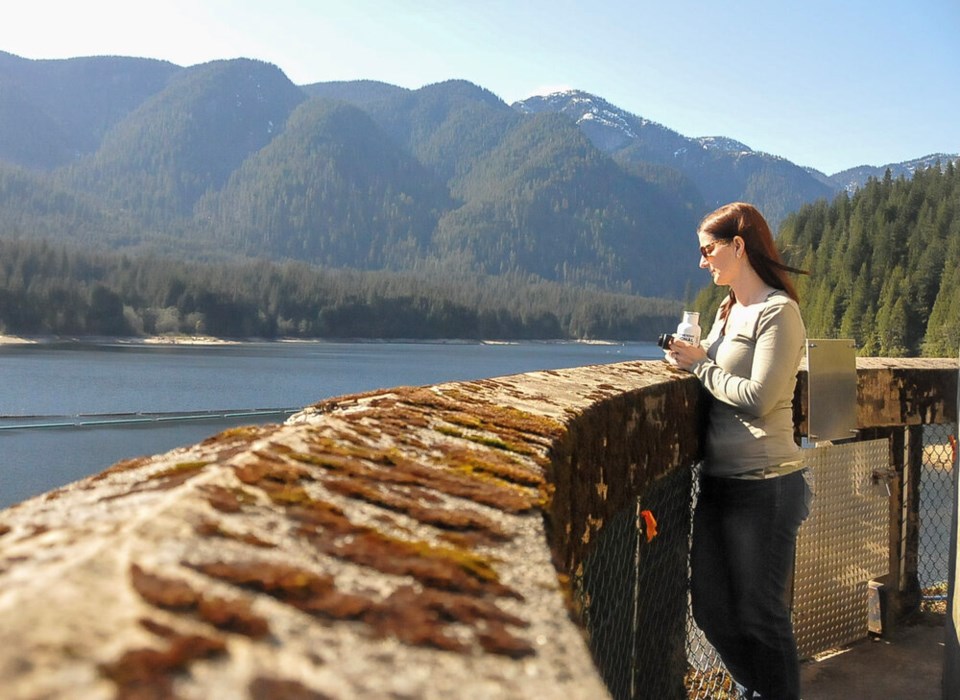Does Coquitlam have proper access to water resources should a wildfire event take place?
This week, city council unanimously decided to send a letter to Metro Vancouver with that subject — one of many related — asking that it create a task force to educate and ensure wildfire preparedness for residents, communities and neighbourhoods that border watersheds.
The letter was written by Coquitlam deputy city manager Raul Allueva and fire chief Jim Ogloff.
It says while the Greater Vancouver Water District (CVWD) already has a program with two fire crews and staged equipment in Coquitlam should a wildfire take place, it claims there are no established automatic aid services with significant resources close by.
"While Metro Vancouver does have dedicated watershed wildfire resources, there is concern amongst municipalities adjacent to forested lands of the level of advanced work that may be needed to mitigate the effect of a potential fire outbreak," the letter reads.
"One of the main risks of climate change to the provision of quality drinking water is the increased likelihood of wildfires in forested watersheds, and the recent heat dome and record temperatures that B.C. experienced this past month has significantly increased concerns in this regard. If such a wildfire did occur, the effects could be far-reaching and may result in negative effects on water quality for many years to come."
The task force would be in addition to six jobs set to be created through a FireSmart grant of almost $500,000 to a joint committee that includes the cities of Coquitlam and Port Coquitlam, as well as the villages of Anmore and Belcarra.
Roughly 5,000 properties in the northeast portion of Metro Vancouver are at risk for wildfires due to their location along the "wildland-urban interface."
The money would go to four part-time student FireSmart educators in Port Coquitlam, who are set to run programs focused on outreach and facilitating hazard assessments.
The other two positions will be based in Coquitlam:
- A full-time one-year FireSmart co-ordinator to establish an outreach program and help ensure cooperation between the various parties through a program charter and information-sharing
- A full-time six-month Local FireSmart Representative to conduct assessments of homes and critical infrastructure in all four sub-regions, and support education and community outreach, including workshops and identifying neighbourhood champions
Belcarra is also getting a $50,000 cut from the grant to upgrade its facilities surrounded by the village's regional park "that are critical for regional wildfire response," including Sasamat fire hall.
"Staff believe that it is appropriate for Metro Vancouver to set up a time-limited Task Force involving Metro, BC Wildfire Service, and municipalities with significant fire service resources," the letter added, believing the key is to enhance fuel management programs near local watersheds to help limit any possible spread.
"Other possible outcomes could include clarifying responsibilities in the event of an urban interface wildfire, supporting the coordination of emergency planning and personnel, as well as potentially involving trained municipal personnel to support Metro Vancouver by providing contracted services to protect facilities in the watersheds threatened by wildfires."
While the goal is to reduce wildfire risks by increasing the public's do-diligence, Coun. Brent Asmundson pointed to selective logging areas that could add fuel to any potential wildfire that sparks in the Tri-Cities.
He believes there may be trouble with accessibility if lumber is left on the ground near Coquitlam's watersheds.
"These are managed watersheds for water for human consumption throughout this region is a vital, vital resource to us," he said.
"If there’s a fire in that watershed, which the report touches on, a siltation in the problems into our water sources would last for a long time. Our filtration system is Capilano-Seymour, [it] would not be able to handle that level of siltation through the water to Coquitlam."
Financially speaking, the goal of the task force would also be to use as little public cash as possible as the letter also claims Metro Vancouver is set to face significant financial challenges ahead.
For more information and to read the letter in full, you can visit the city of Coquitlam's website.





